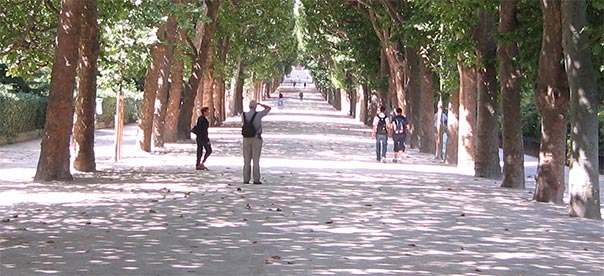 Exploring the Essence of African Safari: Culture, Conservation, and Empowerment
Exploring the Essence of African Safari: Culture, Conservation, and Empowerment
Introduction:
Embarking on an African safari is more than just a journey; it's a profound exploration of culture, conservation, and empowerment. In this article, we delve into the heart of safari from an East African perspective, unveiling a tapestry of traditions, challenges, and triumphs that shape the continent's modern tourism landscape.

The Meaning of Safari:
From the vast plains of the Serengeti to the lush forests of the Congo Basin, safari holds deep cultural significance for East African communities. For the Maasai, Samburu, and other indigenous peoples, safari is a spiritual pilgrimage—a sacred quest to reconnect with the land and its inhabitants. Through their eyes, safari embodies respect for nature, reverence for wildlife, and harmony with the environment. The term "safari" originates from the Swahili word "safari," meaning "journey" or "expedition." Swahili, widely spoken in East Africa, especially in countries like Kenya, Tanzania, and Uganda, gave birth to this term. Popularized during the colonial era, explorers, hunters, and tourists began using it for expeditions to observe wildlife and experience Africa's natural beauty.
Relevance Today:
In today's world, the essence of safari resonates more profoundly than ever. As Africa grapples with environmental challenges and cultural shifts, the values embedded in safari—community, conservation, and sustainability—serve as guiding principles for a brighter future. Yet, amidst this journey of discovery, we confront the shadows of the past.
Colonial Legacy in Tourism:
The legacy of colonialism casts a long shadow over Africa's tourism industry, where vestiges of control and ownership by former colonizers persist, often at the expense of local communities. Despite gaining independence decades ago, many African nations still grapple with economic imbalances that deny them agency over their cultural and natural resources. One glaring manifestation of this imbalance is the control exerted by former colonizers over key tourism establishments. Luxury hotels, safari lodges, and tour companies are frequently owned and operated by foreign interests, perpetuating a narrative of exploitation. This dynamic robs Africans of the opportunity to fully benefit from their own resources and reinforces the notion of their cultural and natural treasures as commodities to be bought and sold by outsiders. Moreover, this economic disparity perpetuates cycles of dependency and marginalization. By maintaining control over the tourism industry, former colonizers dictate the terms of engagement, ensuring that profits primarily flow to external entities rather than circulating within local economies. This leaves African communities economically disenfranchised, dependent on low-wage employment in the tourism sector, and vulnerable to exploitation. Furthermore, the lack of ownership and control over their cultural and natural resources denies Africans the opportunity to shape the narrative surrounding their heritage. Breaking free from this cycle of dependency and marginalization requires empowering local communities, promoting sustainable tourism practices, and decolonizing the narrative surrounding African heritage.
Cultural Appropriation and Marginalization:
Victoria Falls, the largest waterfall in the world, provides an example of cultural appropriation and marginalization. Named after Queen Victoria of Britain, the indigenous Tonga people, who have inhabited the area for centuries, refer to the river as Mulonga Kasambabezi or the Lozi people's term, Mosi O Tunya, meaning "the Smoke that Thunders." Despite the rich cultural heritage surrounding Victoria Falls, foreign-owned tourism businesses dominate the area, marginalizing local communities. Efforts should be made to decolonize the tourism industry, prioritize community involvement and ownership, and promote sustainable practices that respect indigenous cultures and heritage. Renaming Victoria Falls to reflect indigenous names could be considered, aligning recognition of natural wonders with principles of cultural respect and empowerment.
Empowering Local Communities:
Stories of resilience and empowerment emerge from the African landscape. Community-owned lodges like the Damaraland Camp in Namibia exemplify local ownership and management in the tourism sector. Grassroots initiatives in Tanzania, such as the Ujamaa Community Resource Team, reclaim ancestral lands and revitalize cultural traditions through sustainable tourism practices.
Environmental Conservation:
Conservation lies at the heart of safari. Africans lead efforts to protect the continent's biodiversity and natural habitats through initiatives such as anti-poaching efforts and reforestation projects, integrating conservation with tourism to preserve heritage for future generations.
Encouraging Responsible Tourism Practices:
Travelers have a role in supporting responsible tourism practices by choosing locally-owned accommodations, engaging respectfully in cultural exchanges, and minimizing environmental footprints.
Addressing Contemporary Challenges:
Urgent attention and collective action are needed to address challenges like land rights disputes, poaching, climate change impacts, encroachment of tourism developments, loss of biodiversity, socio-economic impacts, and environmental justice concerns.
Highlighting Success Stories:
Success stories like the Ujamaa Community Resource Team in Tanzania, Ol Pejeta Conservancy in Kenya, and Grootbos Private Nature Reserve in South Africa demonstrate the positive impact of responsible tourism initiatives on economic development, environmental conservation, and community empowerment.
Conclusion:
African safari embodies culture, conservation, and empowerment—a journey that transcends borders and celebrates the continent's rich tapestry of life. By empowering local communities, conserving natural ecosystems, and promoting responsible tourism practices, we ensure that safari remains a transformative experience for generations to come. Let us embrace the heartbeat of Africa and embark on a journey of culture, conservation, and empowerment.
























































